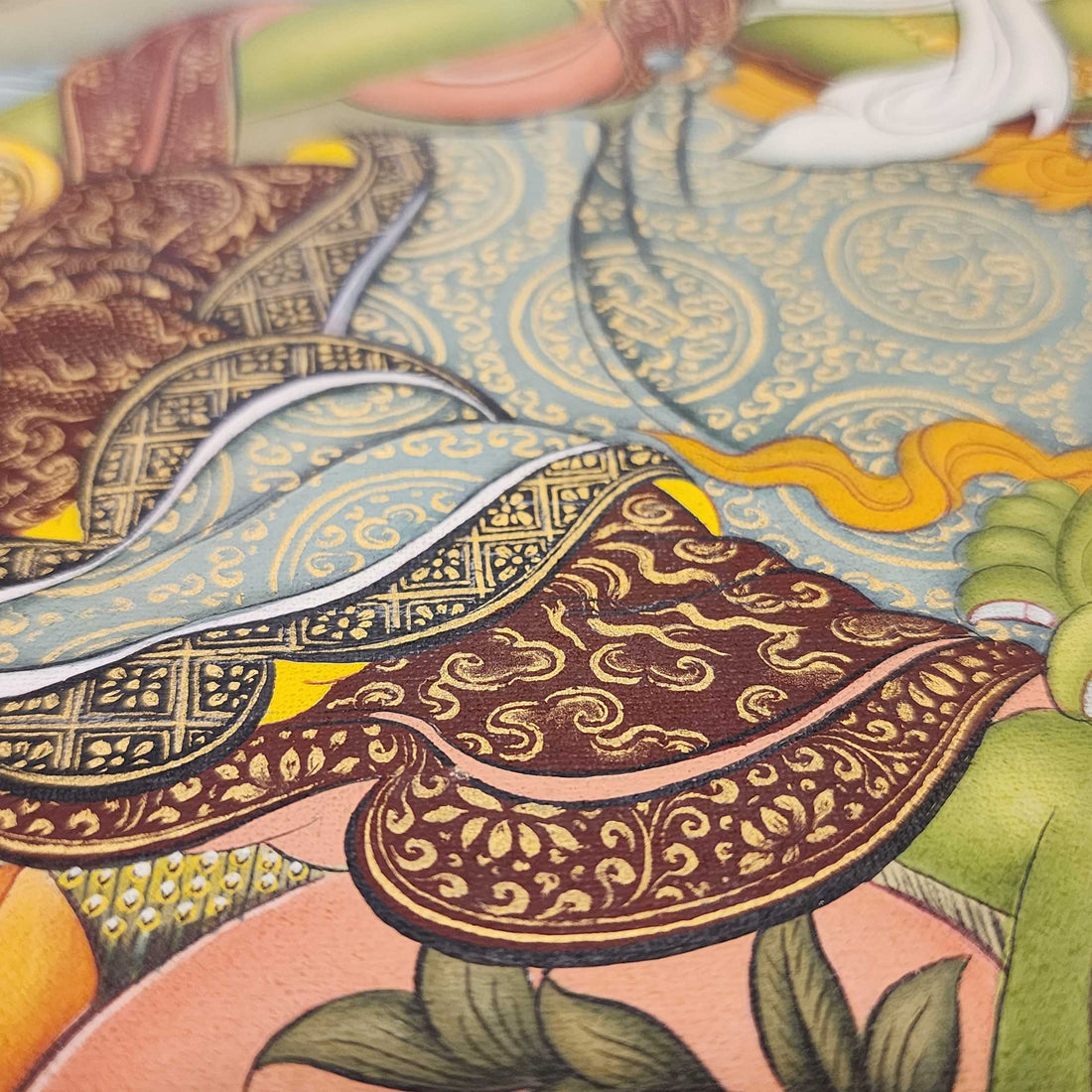
How to Spot a High-Quality Thangka Painting
Share
Introduction
When purchasing a Thangka, quality matters. A high-quality Thangka is not only a beautiful artwork but also an authentic spiritual tool. Here’s how to distinguish a genuine, well-crafted Thangka from a lower-quality one.
Attention to Detail
— Fine lines, intricate patterns, and precise features are signs of mastery.
— Check the deity’s face and hands. blurred or uneven details indicate poor quality.
Proportions and Symmetry
— Authentic Thangkas follow sacred iconographic proportions.
— High-quality Thangkas will appear balanced and symmetrical, never distorted.
Use of Natural Pigments
— Traditional Thangkas use mineral pigments, gold, and organic dyes.
— Cheaper ones may rely on synthetic paints, which fade over time.
Canvas and Mounting
— Quality Thangkas are painted on properly treated cotton or silk canvas.
—They are often framed in brocade, stitched with care and balance.
Spiritual Authenticity
— A true Thangka artist paints with devotion, often beginning with prayers.
— Mass-produced or printed Thangkas lack the spiritual essence of hand-painted ones.
Certification and Origin
— Authentic Thangkas often come from recognized art schools or master painters.
— Certificates of authenticity or knowledge of the artist’s lineage add value.
Conclusion
Investing in a high-quality Thangka ensures both artistic excellence and spiritual authenticity. By recognizing the signs of true craftsmanship, you preserve culture while deepening your spiritual connection.
